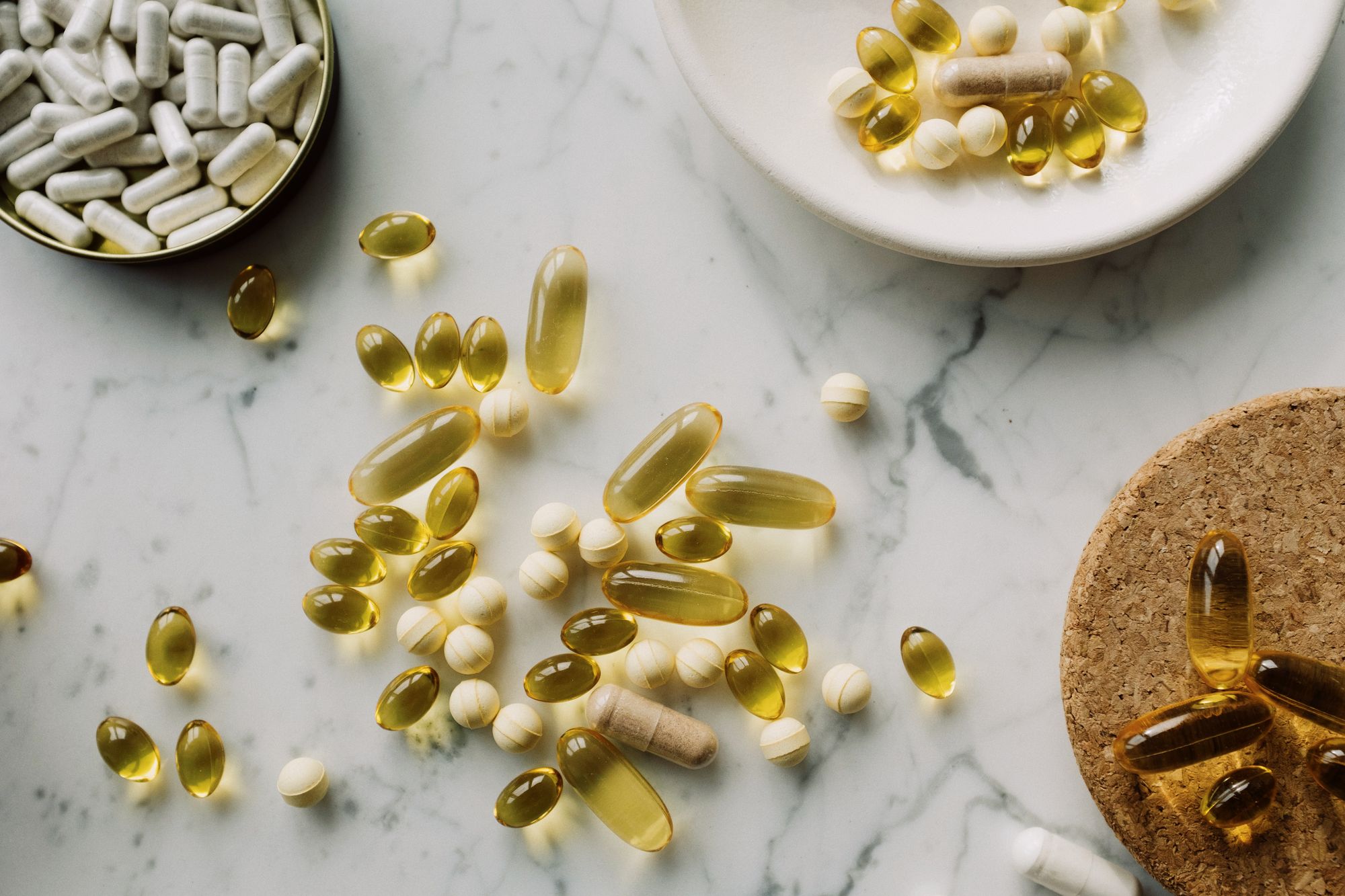Best Supplements for Hormonal Imbalance During Menstruation
Natural supplements offer relief for hormonal imbalances during menstruation.

Hormonal imbalances can be a common issue for many women, especially during menstruation. The menstrual cycle is a complex interplay of hormones that regulate the reproductive system. During this time, hormonal fluctuations can cause a range of physical and emotional symptoms such as bloating, cramping, mood swings, and fatigue. While many over-the-counter medications are available to alleviate these symptoms, some women prefer to take a more natural approach by using supplements. This article will explore some of the best supplements for hormonal imbalance during menstruation, backed by scientific research.
- Magnesium is a mineral that plays a crucial role in many bodily functions, including regulating hormonal balance. During menstruation, magnesium levels can fluctuate, leading to menstrual-related symptoms such as cramping and mood swings. Supplementing with magnesium can help alleviate these symptoms by relaxing the muscles and reducing inflammation. A study published in the Journal of Women's Health found that taking 360 mg of magnesium daily reduced the severity of PMS symptoms, including bloating, breast tenderness, and mood changes. Another study found that magnesium supplements reduced menstrual migraines' frequency and intensity. Magnesium rich food sources include spinach, almonds, black beans, quinoa, tofu, banana, etc.
- Vitamin B6 is a water-soluble vitamin that plays a critical role in many bodily functions, including regulating the menstrual cycle. It is involved in the production of neurotransmitters such as serotonin, which can help alleviate mood swings and irritability during menstruation. A study published in the Journal of Women's Health found that taking 100 mg of vitamin B6 daily reduced the severity of PMS symptoms such as breast tenderness and mood swings. Another study found that taking vitamin B6 supplements helped alleviate menstrual-related migraines. B6 rich food sources include chickpeas, potatoes, pistachios, banana, sweet potatoes, avocado, brown rice. etc.
- Omega-3 Fatty Acids are essential fatty acids that play a vital role in many bodily functions, including reducing inflammation. During menstruation, inflammation can cause a range of symptoms such as cramping and bloating. Supplementing with omega-3 fatty acids can help alleviate these symptoms by reducing inflammation in the body. A study published in Reproductive Health found that taking omega-3 supplements reduced the severity of menstrual pain and improved overall menstrual health. Another study found that taking omega-3 supplements reduced the severity of PMS symptoms such as bloating and breast tenderness. Omega 3 Fatty acids rich food sources include fishes like mackerel, salmon, sardines, tuna, flaxseeds, walnuts and chia seeds.
- Vitex, also known as chaste berry, is a herb that has been traditionally used to regulate menstrual cycles and alleviate PMS symptoms. It works by regulating the pituitary gland, which controls the production of hormones such as estrogen and progesterone. A study published in the Journal of Women's Health found that taking vitex supplements reduced the severity of PMS symptoms such as breast tenderness, mood changes, and headaches. Another study found that taking vitex supplements helped regulate menstrual cycles and reduce symptoms such as bloating and acne.
- Calcium is a mineral that plays a crucial role in many bodily functions, including regulating hormonal balance. During menstruation, calcium levels can fluctuate, leading to menstrual-related symptoms such as cramping and mood swings. Supplementing with calcium can help alleviate these symptoms by relaxing the muscles and reducing inflammation. A study published in the American Journal of Obstetrics and Gynecology found that taking calcium supplements reduced the severity of PMS symptoms such as bloating and mood changes. Calcium rich food sources include green vegetables like spinach, broccoli, milk and milk products, ragi, almonds, salmon and tofu.
SUMMARY
Hormonal imbalances during menstruation can cause a range of physical and emotional symptoms. While many over-the-counter medications are available to alleviate these symptoms, some women prefer to take a more natural approach by using supplements. Magnesium, vitamin B6, omega-3 fatty acids, vitex, and calcium are all supplements that have been scientifically shown to alleviate symptoms of hormonal imbalance.
Jayti Shah is a Clinical Nutritionist with a master's degree in Clinical Nutrition and Dietetics. She is a member of the Indian Dietetic Association (IDA). Over the last 9 years, she has helped 400 clients in their clinical and weight loss journeys. She works with SocialBoat as a nutrition consultant.
At SocialBoat, we offer custom diet plans and guided workouts to help you achieve your goals in a 360-degree approach. Our gamified experience ensures that you don’t find workouts boring and we reward you for being consistent with your efforts.

REFERENCES
- Quaranta S, Buscaglia MA, Meroni MG, Colombo E, Cella S. Pilot study of the efficacy and safety of a modified-release magnesium 250mg tablet (Sincromag®) for the treatment of premenstrual syndrome. Clinical drug investigation. 2007;27(1):51-58. doi: 10.2165/00044011-200727010-00006.
- Peikert A, Wilimzig C, Kohne-Volland R. Prophylaxis of migraine with oral magnesium: results from a prospective, multi-center, placebo-controlled and double-blind randomized study. Cephalalgia. 1996;16(4):257-263. doi: 10.1046/j.1468-2982.1996.1604257.x.
- Wyatt KM, Dimmock PW, Jones PW, Shaughn O’Brien PM. Efficacy of vitamin B-6 in the treatment of premenstrual syndrome: systematic review. BMJ. 1999;318(7195):1375-1381. doi: 10.1136/bmj.318.7195.1375.
- Mauskop A, Altura BM. Role of magnesium in the pathogenesis and treatment of migraines. Clin Neurosci. 1998;5(1):24-27. PMID: 9523054
- Deutch B, Jørgensen EB, Hansen JC. Menstrual discomfort in Danish women reduced by dietary supplements of omega-3 PUFA and B12 (fish oil or seal oil capsules). Nutr Res. 2000;20(5):621-631. doi: 10.1016/s0271-5317(00)90130-9.
- Rahbar N, Asgharzadeh N, Ghorbani R. Effect of omega-3 fatty acids on intensity of primary dysmenorrhea. Int J Gynaecol Obstet. 2012;117(1):45-47. doi: 10.1016/j.ijgo.2011.10.007.
- Schellenberg R. Treatment for the premenstrual syndrome with agnus castus fruit extract: prospective, randomised, placebo controlled study. BMJ. 2001;322(7279):134-137. doi: 10.1136/bmj.322.7279.134.
- Milewicz A, Gejdel E, Sworen H, Sienkiewicz K, Jedrzejak J, Teucher T. Vitex agnus castus extract in the treatment of luteal phase defects due to latent hyperprolactinemia. Results of a randomized placebo-controlled double-blind study. Arzneimittelforschung. 1993;43(7):752-756.
- Thys-Jacobs S, Ceccarelli S, Bierman A, Weisman H, Cohen MA, Alvir J. Calcium supplementation in premenstrual syndrome: a randomized crossover trial. J Gen Intern Med. 1989;4(3):183-189. doi: 10.1007/BF02596467.
